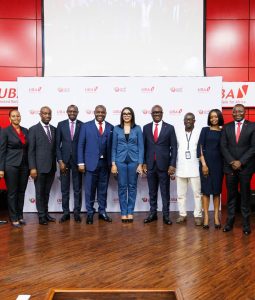
…As more local refineries give notice to commence production
As more private refineries indicate readiness to commence production soon in Nigeria, the Nigerian Upstream Petroleum Regulatory Commission (NUPRC) is taking all necessary steps within the prescriptions of the Petroleum Industry Act (2021) to ensure adequate and consistent supply of feedstock to operators. It cautioned that there would be consequences for sabotaging the process.The pre-emptive steps are being taken because it would send wrong and unbecoming signals to the international business community if operators of domestic refineries in one of the world’s largest crude oil-producing countries start importing feedstock for their production. It was in contemplation of this that Section 109 of the Petroleum Industry Act (PIA) 2021 introduced the Domestic Crude Supply Obligation (DCSO) to Nigeria’s oil industry in a bid to ensure that domestic refineries are not starved of crude oil supply for their operation. The Commission has already taken some steps in furtherance of this goal by developing and signing the Production Curtailment and Domestic Crude Oil Supply Obligation (PC&DCSO) Regulation 2023, in line with the provisions of Section 109(2) of the PIA 2021, preparing for approval and implementation the DCSO framework and procedure guide, processing of application for refinery feedstock approval, requesting all oil producing companies to provide information on their planned crude oil off-take and existing sales purchase agreement, and advising the Nigerian Midstream and Downstream Petroleum Regulatory Authority (NMDPRA) to furnish it with the domestic crude oil requirement of refineries in operation.NUPRC is determined to take further necessary steps required to avoid inadequate supply of crude oil to domestic refineries and would not hesitate, where necessary, to enforce the stipulated penalties for violations and non-compliance to the provisions of the Act. In pursuance to Section 109(2) of the PIA, the Commission gazetted the PC&DCSO Regulations which provides clarity on the obligations of the stakeholders.The law stipulates that the supply of crude oil to the domestic market shall be on a “willing buyer and willing seller” basis and the Nigerian Midstream and Downstream Petroleum Regulatory Agency (NMDPRA) shall report to the Commission where there is inadequate supply to the refineries.The Commission has a responsibility to publish on a biannual basis, the domestic crude refining requirements of operating refineries in Nigeria as received from NMDPRA, in line with Section 109(3) of the PIA. Where there is a reported crude supply shortage from the Authority, the Commission is under obligation to issue a Request for Quotation (RFQ) to producers asking for submission of quotation for bridging the shortfall, whereupon the Commission will contact affected refineries to facilitate contract negotiations between the stakeholders. Failure to meet the terms will attract from the Commission an obligation on the oil producers to supply the required volumes and notify the Authority accordingly.In furtherance of this, and in line with the Commission’s mandate of ensuring crude oil supply to licensed refineries in Nigeria as enshrined in Section 109 (4) of the PIA, all the 52 exploration and production companies have been invited to a meeting on November 1, 2023, for alignment on the implementation of domestic crude oil supply obligation, operator’s compliance status and operator’s response. By October 27, 11 of the operators had responded, while that of the remaining 42 operators is still being awaited.Those that have so far responded are Dubri Oil Limited, Heirs Energies Limited, Waltersmith Petroman Oil Limited, Midwestern Oil & Gas Company Limited, Frontier Oil Limited, Mobil Producing Nigeria Limited, All Grace Energy Limited, Green Energy International Limited, Enageed Resources Limited and Pillar Oil Limited.The Commission reiterates its determination to apply all required penalties for default and has emphasised that a company that fails to respond to the Request for Quotation (RFQ) within the specified period is liable to pay an administrative fine of USD10,000, while a company that has not complied with its DCSO, where willing buyer(s) exist will not be granted an export permit. A company that fails to comply with the DCSO would be made to pay a penalty of 50% of the Fiscal Price per barrel not delivered.




I don’t think the title of your article matches the content lol. Just kidding, mainly because I had some doubts after reading the article. Try to Visit My Web Site : MPOXL
Good blog! I learned some very valuable concepts from it. writing services provide expert assistance to students in crafting well-researched and professionally written legal papers. If you’re see king support with complex legal topics or tight deadlines, these services ensure quality and timely submission, helping you excel in your academic journey with ease. Try to Visit My Web Site :SLOT DEPO 10K DANA